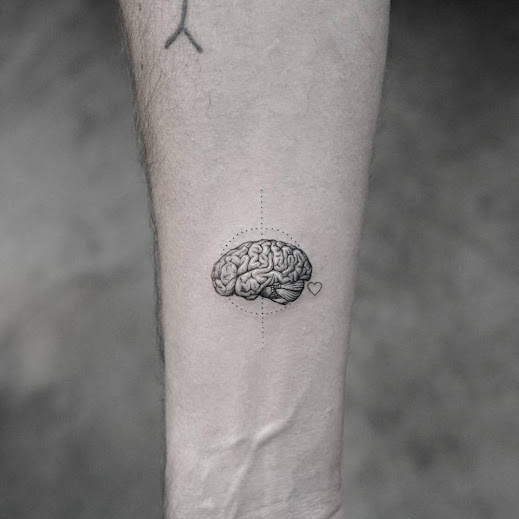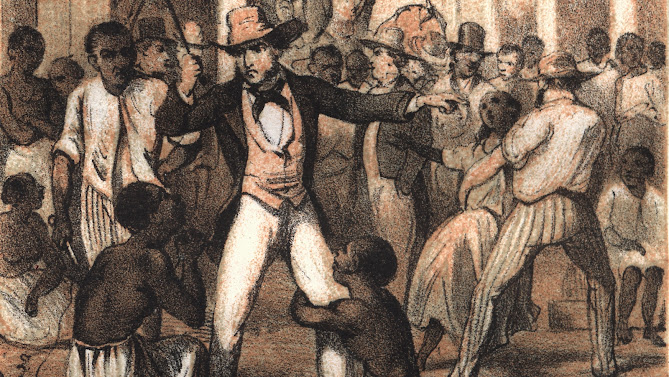Tattoos Are A Sign Of Poor Mental Health And Undesirable Behavior
"Tattoos of all kinds have been found to be associated with marginal groups, antisocial behaviours and mental health problems."
"Our study results suggest that the subject of tattoo and its location may indicate that a certain person belongs to a criminal group, and may express the choice of drug, its preferred use, and expected or desirable feelings. These results are consistent with accumulating evidence that persons having such tattoos are drug addicts. That is why; the presence of a tattoo noted during any sort of examination of associated persons should prompt an in-depth assessment by a psychiatrist or forensic psychologist."
"Given these strong links between tattooing and high risk behaviours, the tattooing can serve as a useful, easily visible and clinical marker that may identify people who are at a higher risk for engaging in illegal deeds."
"Significantly more forensic psychiatric inpatients with tattoos had a diagnosis of ASPD compared to patients without tattoos. Patients with ASPD also had a significantly greater number of tattoos, a trend toward having a greater percentage of their total body surface area tattooed, and were more likely to have a history of substance abuse than patients without ASPD. Tattooed subjects, with or without ASPD, were significantly more likely to have histories of substance abuse, sexual abuse and suicide attempts than non-tattooed patients."
"We find that the presence, number, and specific features of tattoos are positively correlated with two of the health-related outcomes (ever diagnosed with a mental health issue and trouble sleeping) and all three of the risky behaviors (P < .05). Magnitudes are larger for those with multiple, visible, and offensive tattoos."
"Tattooed students are significantly more likely than non-tattooed students to engage in alcohol and marijuana use and risky sexual behaviors."
"Adolescents with a greater number of tattoos (2 or more) manifest a higher aggression, low frustration tolerance and impulsiveness, social disinhibition and they are emotionally without social fears, unpleasantness and shame. Young people with one tattoo don’t have a different profile, but a need of satisfying fashion trends and solving their developing uncertainties and depressiveness."
"Within the group of individuals aged between 14 and 44 years, unemployment and nonaffiliation to a church are positively correlated, tattooing is significantly correlated with the perception of reduced mental health, and both tattooing and body piercing are correlated with significantly increased sensation-seeking behavior."
"Results indicate that social bonds, prior deviant involvement, self-protection, and negative self-appraisal all were predictive of tattoo acquisition. Results also show nontrivial differences in the likelihood of tattoo acquisition for different subgroups of adolescents, ranging from 1 in 5 for adolescents who scored high on several risk factors at once to 1 in 160 for those who scored low."
"Psychiatric disorders, such as antisocial personality disorder, drug or alcohol abuse and borderline personality disorder, are frequently associated with tattoos. Finding a tattoo on physical examination should alert the physician to the possibility of an underlying psychiatric condition."
"Our study results suggest that the subject of tattoo and its location may indicate that a certain person belongs to a criminal group, and may express the choice of drug, its preferred use, and expected or desirable feelings. These results are consistent with accumulating evidence that persons having such tattoos are drug addicts. That is why; the presence of a tattoo noted during any sort of examination of associated persons should prompt an in-depth assessment by a psychiatrist or forensic psychologist."
"Given these strong links between tattooing and high risk behaviours, the tattooing can serve as a useful, easily visible and clinical marker that may identify people who are at a higher risk for engaging in illegal deeds."
"Significantly more forensic psychiatric inpatients with tattoos had a diagnosis of ASPD compared to patients without tattoos. Patients with ASPD also had a significantly greater number of tattoos, a trend toward having a greater percentage of their total body surface area tattooed, and were more likely to have a history of substance abuse than patients without ASPD. Tattooed subjects, with or without ASPD, were significantly more likely to have histories of substance abuse, sexual abuse and suicide attempts than non-tattooed patients."
"We find that the presence, number, and specific features of tattoos are positively correlated with two of the health-related outcomes (ever diagnosed with a mental health issue and trouble sleeping) and all three of the risky behaviors (P < .05). Magnitudes are larger for those with multiple, visible, and offensive tattoos."
"Tattooed students are significantly more likely than non-tattooed students to engage in alcohol and marijuana use and risky sexual behaviors."
"Adolescents with a greater number of tattoos (2 or more) manifest a higher aggression, low frustration tolerance and impulsiveness, social disinhibition and they are emotionally without social fears, unpleasantness and shame. Young people with one tattoo don’t have a different profile, but a need of satisfying fashion trends and solving their developing uncertainties and depressiveness."
"Within the group of individuals aged between 14 and 44 years, unemployment and nonaffiliation to a church are positively correlated, tattooing is significantly correlated with the perception of reduced mental health, and both tattooing and body piercing are correlated with significantly increased sensation-seeking behavior."
"Results indicate that social bonds, prior deviant involvement, self-protection, and negative self-appraisal all were predictive of tattoo acquisition. Results also show nontrivial differences in the likelihood of tattoo acquisition for different subgroups of adolescents, ranging from 1 in 5 for adolescents who scored high on several risk factors at once to 1 in 160 for those who scored low."
"Psychiatric disorders, such as antisocial personality disorder, drug or alcohol abuse and borderline personality disorder, are frequently associated with tattoos. Finding a tattoo on physical examination should alert the physician to the possibility of an underlying psychiatric condition."
Source: https://www.tandfonline.com/doi/abs/10.1080/09585189908402168
Source: https://www.researchgate.net/profile/Francesco-Crespi/publication/247137478_In_vivo_evidence_that_central_nitrogen_monoxide_is_activated_by_amphetamine_Is_this_system_implicated_in_the_neurotoxicity_of_drugs_of_abuse/links/5decc5eea6fdcc28370f609e/In-vivo-evidence-that-central-nitrogen-monoxide-is-activated-by-amphetamine-Is-this-system-implicated-in-the-neurotoxicity-of-drugs-of-abuse.pdf
Source: https://www.researchgate.net/profile/Francesco-Crespi/publication/247137478_In_vivo_evidence_that_central_nitrogen_monoxide_is_activated_by_amphetamine_Is_this_system_implicated_in_the_neurotoxicity_of_drugs_of_abuse/links/5decc5eea6fdcc28370f609e/In-vivo-evidence-that-central-nitrogen-monoxide-is-activated-by-amphetamine-Is-this-system-implicated-in-the-neurotoxicity-of-drugs-of-abuse.pdf



Comments
Post a Comment